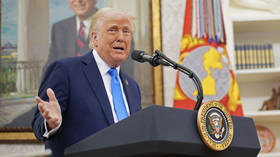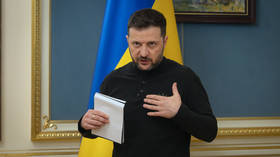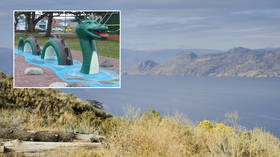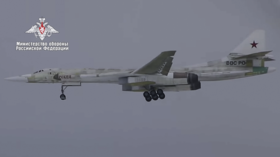‘Time to stop the war’: Talks are ultimately only way to resolve bitter Nagorno-Karabakh conflict, Armenian president tells RT
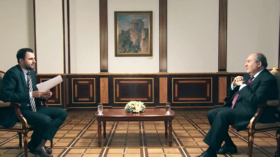
The war over disputed Nagorno-Karabakh, which “never stopped” after a six-year conflict paused in the 1990s, must end and measures to ensure peace between Yerevan and Baku need to be put in place, Armenia’s president has told RT.
Armen Sarkissian told RT’s Ilya Petrenko that the fighting between the close neighbors – and bitter foes in modern times – has “never stopped in Karabakh, even with the ceasefire in 1994,” when Armenia and Azerbaijan signed a peace agreement.
What I am saying today – it’s time to stop the war. I mean, you look now at the [Nagorno-Karabakh capital] city of Stepanakert even from a drone, it looks like a city after the Second World War.
Armenia and Azerbaijan could still come to terms on numerous issues, the president stated. Several “differences” were left unresolved after 20 years of talks, but they are “principled ones” and require “political courage and decisions.” Now any progress has been ruined, he said, but there is no other way than to return to negotiations.
Also on rt.com The 'least-safe' place in Nagorno-Karabakh: RT crew films small town under constant bombardment despite declared truce (VIDEO)For the president, the main issue now is to stop the hostilities. The agreed ceasefire took effect on noon Saturday and was meant to allow the belligerents to exchange prisoners of war and evacuate the dead. Now more than ever, flexibility is crucial, the Armenian president said.
I think if I’m going to say ‘this is what I want’ and the Azeri side will say ‘this is what I want’, we are quite apart from each other. And that is why the whole process of negotiations is important, to bring them together.
Baku and Yerevan negotiated a ceasefire last Friday night following over 10 hours of talks mediated by Russian Foreign Minister Sergey Lavrov. Major emphasis was placed on ending the fighting without preconditions, whereas other details of the truce will be “agreed separately,” Lavrov said.
Commenting on Russia’s efforts at peace-making, Sarkissian stated that Moscow is in a unique position, having warm relations with both Azerbaijan and Armenia. While the two sides can equally trust Russia, Moscow itself is taking “a very hard responsibility, the responsibility of being a mediator,” he said.
Right after the ceasefire entered into force, Yerevan and Baku accused each other of breaking the 'humanitarian truce.' Azerbaijani officials insisted the other side had initiated the cross-border shelling of the city of Ganja, while the Armenians pointed to the bombardment of civilian-populated cities and towns within Nagorno-Karabakh.
“The ceasefire is not kept fully and it’s not only my words, it’s the recognition by a lot of international monitors,” according to Sarkissian. But, “if one violates the other one answers.”
To make sure that it is respected, all sides should apply a lot of effort, and a verification mechanism to detect the violator should be put in place. “There are many ways of doing that internationally [or] using technology,” he said.
Our ultimate goal is to stop the war, to turn back to the table of negotiations and finally go to the right direction.
And that direction is the decision over the final status of Nagorno-Karabakh, which can be made only through “normal human negotiations,” the Armenian president insisted.
Watch the full interview below.
Think your friends would be interested? Share this story!



